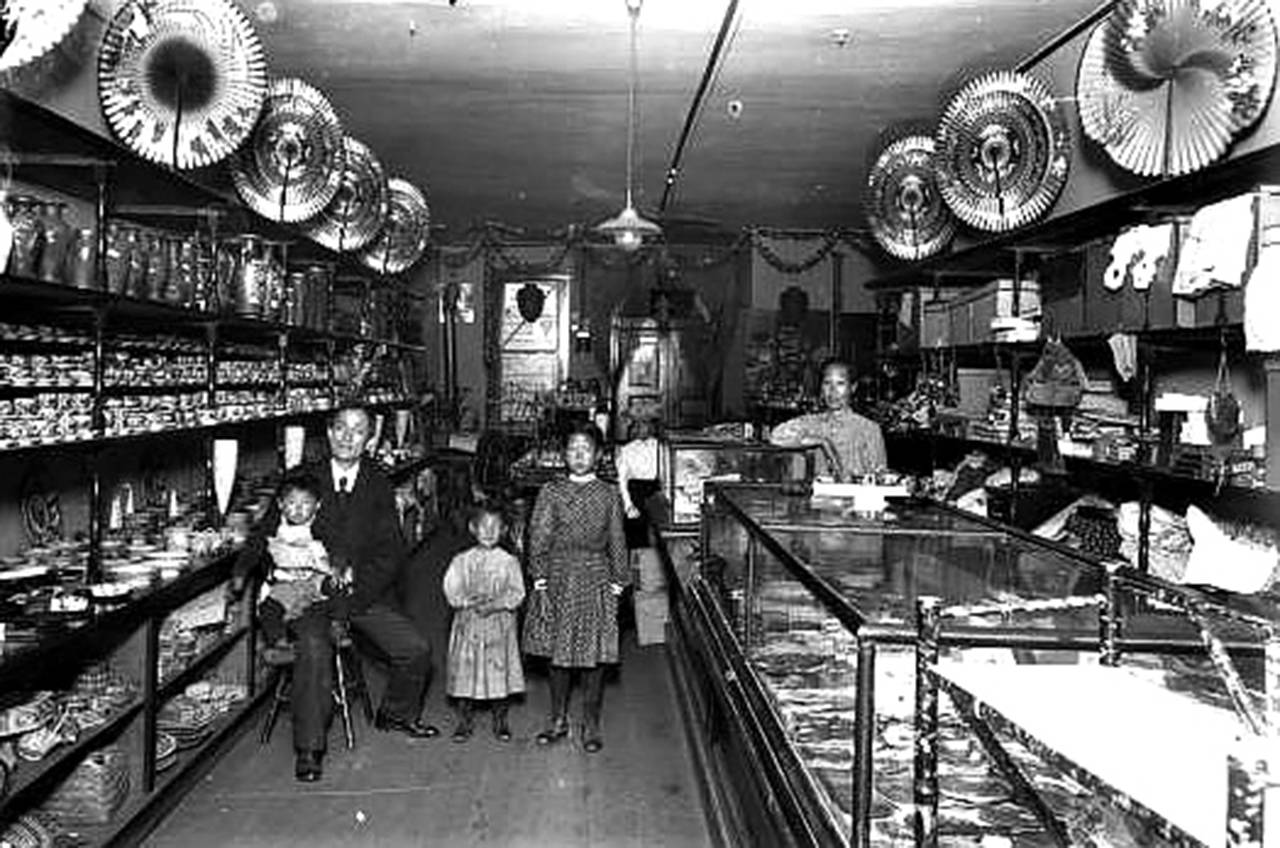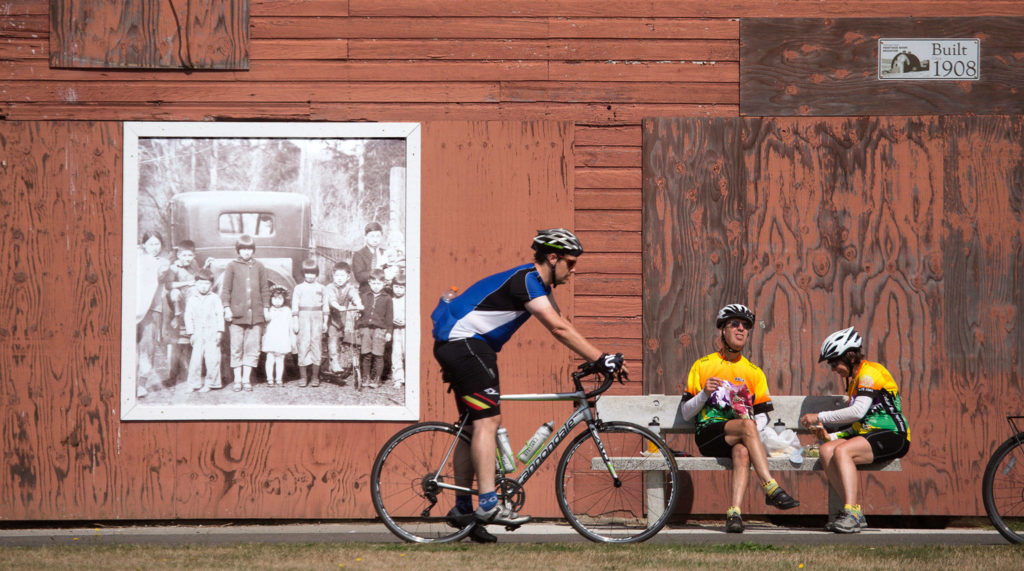From Snohomish County to Congress, condemnations came swiftly. Anti-Asian acts are on the rise and were highlighted by Tuesday’s shooting deaths of eight people in Georgia. Local history shows how Asians were targeted long ago, by brutal attacks and through government actions, even as their toil helped build the Northwest.
“There is no place for hate, violence, and racism in Snohomish County,” said County Executive Dave Somers in a statement released Wednesday, a day after eight people, six of them women of Asian descent, were killed at Atlanta-area spas.
Gov. Jay Inslee also responded: “These shootings reflect hate against Asians, against women, and against immigrants. We all have a role in denouncing hatred wherever it reveals itself.”
And in Washington, D.C., the House Judiciary Committee heard congresswomen of Asian descent speak Thursday of growing fears. California Rep. Doris Matsui, born in an internment camp for Japanese Americans during World War II, cited former President Donald Trump’s coronavirus rhetoric as a spark hurting “innocent communities.”
One Snohomish County landmark, the Nakashima Barn, is part of our nation’s shameful anti-Asian history. Built around 1906 by Daniel Waldo Bass, it sits in silence at the north end of the Centennial Trail along Highway 9. If it could speak, it would tell of Kamezo and Mije Nakashima. With some of their 11 children, they operated the dairy farm north of Arlington for about 30 years.
As Japanese immigrants, they were barred from owning property. By 1937, Sophie Frye Bass had transferred the deed to one of their sons, a U.S. citizen.
On Feb. 19, 1942, President Franklin Roosevelt signed Executive Order 9066, which forced Kamezo and Mije Nakashima into the Tule Lake Internment Camp in California. Other family members were sent to the Minidoka Relocation Center in Idaho. They were among 120,000 first-generation Japanese immigrants and their American-born children sent to such camps.
After the war, the couple — whose son had been forced to sell the farm for little money — operated a Seattle hotel, according to Tracy Tallman’s 2008 essay on the HistoryLink website.
Long before World War II, government policies, violence and bias against Asians made news in Snohomish County.
In the space allowed here, one can barely scratch the surface of all that Asian people endured as they lived and worked in this community.
Lisa Labovitch, a history specialist at the Everett Public Library, has researched the treatment of workers from China, Japan and India in the Northwest. Of the many examples of anti-immigrant incidents covered by The Everett Daily Herald, some stand out for their blatant expressions of hate.
“Everett Has No Use for the Heathen Chinese,” was the headline on a Herald article by D.R. French, published Feb. 22, 1902. It protested plans to operate a cannery in Everett using “Mongolian muscle.” The article said “several deeds of violence were committed against the Mongolians” and quoted County Assessor E.M. Allen as saying “Everett will be a better and cleaner city without Chinamen.”
In 1882, the Chinese Exclusion Act was signed by President Chester A. Arthur, banning all immigration of Chinese laborers. Over time, many Chinese immigrants entered through loopholes in the law, which allowed for merchants, diplomats, teachers, students and travelers, but not laborers.
The anti-Chinese movement is explored in classroom resources created by the University of Washington’s Center for the Study of the Pacific Northwest. Our state saw strong labor activism between 1880 and 1920, with conflict not only between classes, but between racial groups.
The Japanese were targets, too.
A Herald article dated March 6, 1901, told of a group of boys who “Threw Rocks at Japs for the Fun of It.” The newspaper reported that six boys, accused of stoning a Japanese crew passing through Everett on a work train, were found “guilty as charged.” But their punishment, a $10 fine, was suspended due to “good behavior of the culprits.”
Among the UW Libraries collections is an extensive compilation, “Chinese and Japanese in The Everett Herald: February 11, 1901 to June 30, 1910,” by John R. Litz. The Seattle man, who died in 2016, was a former high school history teacher with an interest in railroads, mining and the area’s Japanese community.
His listings include a Herald article about the June 1910 ouster of Japanese mill workers from Darrington, and a Japanese vice consul’s protest visit to Everett that followed.
Several years earlier, in 1907, 100 Darrington residents had signed a manifesto requesting that townsfolk and businesses refuse to employ Japanese or Chinese laborers, according to a 2009 HistoryLink essay by Janet Oakley. Some didn’t sign the manifesto, and in 1910 the United States Mill had hired Japanese workers.
The story of an early Everett store operator hints at the hardships faced by Asian people here. Mindy Van Wingen, assistant director of the Everett Public Library, wrote in the library’s A Reading Life blog about the shop. Called the Japan Bazaar, it sold “Japanese Fancy Goods,” according to a Herald ad. The shop occupied several locations on Hewitt Avenue from 1901 to 1910.
It was operated by Charles Kan and his wife, Beam Kan, who were Chinese. Despite the Chinese Exclusion Act, Charles Kan was listed in a Seattle city directory in 1892, according to the blog. In 1885 and 1886, Chinese people were expelled from Seattle and Tacoma.
Although he was Chinese, the blog says the Washington state census identified Kan as a merchant from Japan.
According to the Mukilteo Historical Society, Japanese workers were driven out of Everett’s Clark-Nickerson Mill in 1904 and 1907. And in 1906, Everett longshoremen refused to unload a vessel carrying Japanese crewmen, according to The Herald.
In Mukilteo, Japanese mill workers weren’t necessarily welcomed, but they were needed. The history of Mukilteo’s Japanese Gulch was featured in a 2010 article, “A Place of Happiness and Peace,” by then Herald writer Yoshiaki Nohara. It told of Mas Odoi, whose parents came in 1903 to what was then called Japan Town for work in a Mukilteo sawmill.
Like the Arlington dairy farmers, Odoi spent time in an internment camp during World War II. He went on to serve his country. Odoi was wounded in Italy as a member of the 442nd Regimental Combat Team and was awarded a Bronze Star and the Purple Heart. Masaru “Mas” Odoi died July 28, 2013. With full military honors, he was buried at Tahoma National Cemetery in Kent.
In this time of reckoning, a look back at ugly history is as important as looking forward.
About 3,800 acts targeting Asian Americans have been recorded over the past year, according to a Washington Post article citing research by the Study of Hate and Extremism at California State University at San Bernardino.
Here, leaders spoke up.
“The longstanding contributions of Asian Americans and Pacific Islanders to our democracy, economy, culture, and way of life deserve our honor and gratitude,” Somers said.
Julie Muhlstein: jmuhlstein@heraldnet.com
Talk to us
> Give us your news tips.
> Send us a letter to the editor.
> More Herald contact information.


























